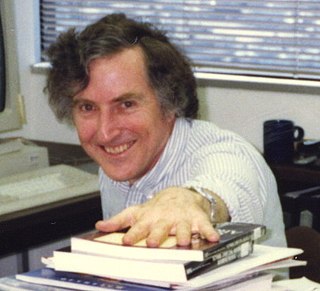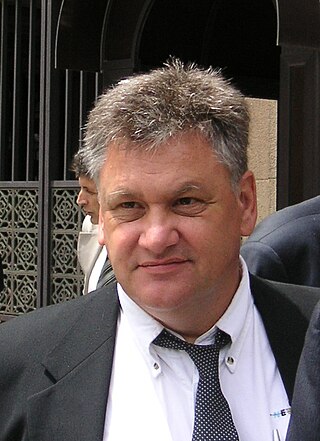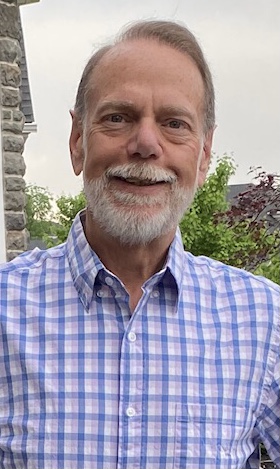
The history of the Internet has its origin in information theory and the efforts of scientists and engineers to build and interconnect computer networks. The Internet Protocol Suite, the set of rules used to communicate between networks and devices on the Internet, arose from research and development in the United States and involved international collaboration, particularly with researchers in the United Kingdom and France.
In computer network engineering, an Internet Standard is a normative specification of a technology or methodology applicable to the Internet. Internet Standards are created and published by the Internet Engineering Task Force (IETF). They allow interoperation of hardware and software from different sources which allows internets to function. As the Internet became global, Internet Standards became the lingua franca of worldwide communications.

The Internet Engineering Task Force (IETF) is a standards organization for the Internet and is responsible for the technical standards that make up the Internet protocol suite (TCP/IP). It has no formal membership roster or requirements and all its participants are volunteers. Their work is usually funded by employers or other sponsors.
A Request for Comments (RFC) is a publication in a series from the principal technical development and standards-setting bodies for the Internet, most prominently the Internet Engineering Task Force (IETF). An RFC is authored by individuals or groups of engineers and computer scientists in the form of a memorandum describing methods, behaviors, research, or innovations applicable to the working of the Internet and Internet-connected systems. It is submitted either for peer review or to convey new concepts, information, or, occasionally, engineering humor.
Rough consensus is a term used in consensus decision-making to indicate the "sense of the group" concerning a particular matter under consideration. It has been defined as the "dominant view" of a group as determined by its chairperson. The term was used by the Internet Engineering Task Force (IETF) in describing its procedures for working groups (WGs). The means to establish rough consensus was described by the IETF as follows:
Working groups make decisions through a "rough consensus" process. IETF consensus does not require that all participants agree although this is, of course, preferred. In general, the dominant view of the working group shall prevail.. Consensus can be determined by a show of hands, humming, or any other means on which the WG agrees. Note that 51% of the working group does not qualify as "rough consensus" and 99% is better than rough. It is up to the Chair to determine if rough consensus has been reached.
The Internet Architecture Board (IAB) is "a committee of the Internet Engineering Task Force (IETF) and an advisory body of the Internet Society (ISOC). Its responsibilities include architectural oversight of IETF activities, Internet Standards Process oversight and appeal, and the appointment of the Request for Comments (RFC) Editor. The IAB is also responsible for the management of the IETF protocol parameter registries."

The Internet Society (ISOC) is an American nonprofit advocacy organization founded in 1992 with local chapters around the world. Its mission is "to promote the open development, evolution, and use of the Internet for the benefit of all people throughout the world." It has offices in Reston, Virginia, U.S., and Geneva, Switzerland.
An Internet Draft (I-D) is a document published by the Internet Engineering Task Force (IETF) containing preliminary technical specifications, results of networking-related research, or other technical information. Often, Internet Drafts are intended to be work-in-progress documents for work that is eventually to be published as a Request for Comments (RFC) and potentially leading to an Internet Standard.
The Host Identity Protocol (HIP) is a host identification technology for use on Internet Protocol (IP) networks, such as the Internet. The Internet has two main name spaces, IP addresses and the Domain Name System. HIP separates the end-point identifier and locator roles of IP addresses. It introduces a Host Identity (HI) name space, based on a public key security infrastructure.

Robert Braden was an American computer scientist who played a role in the development of the Internet. His research interests included end-to-end network protocols, especially in the transport and network layers.

Frederick J. Baker, is an American engineer, specializing in developing computer network protocols for the Internet.
Adrian Farrel is a British engineer and author, specialising in developing computer network protocols for the Internet. He is active in the Internet Engineering Task Force.
A Best Current Practice (BCP) is a de facto level of performance in engineering and information technology. It is more flexible than a standard, since techniques and tools are continually evolving.
The former IETF Administrative Oversight Committee (IAOC) was part of the support organization for the Internet Engineering Task Force (IETF).

Barry Leiba is a computer scientist and software researcher. He retired from IBM's Thomas J. Watson Research Center in Hawthorne, New York in February 2009, and now works for FutureWei Technologies as a Director of Internet Standards. His work has focused for many years on electronic mail and anti-spam technology, on mobile computing and the Internet of things, and on Internet standards.

Mark James Handley is Professor of Networked Systems in the Department of Computer Science of University College London since 2003, where he leads the Networks Research Group.

Joseph Noel Chiappa is an American retired researcher who worked in the area of information systems architecture and software, principally computer networks.
Allison Mankin is an American computer scientist and prominent figure in the area of Internet governance. She previously served as the Internet Research Task Force (IRTF) Chair and holds numerous leadership positions within the Internet Engineering Task Force (IETF), which is known for developing Internet standards.








